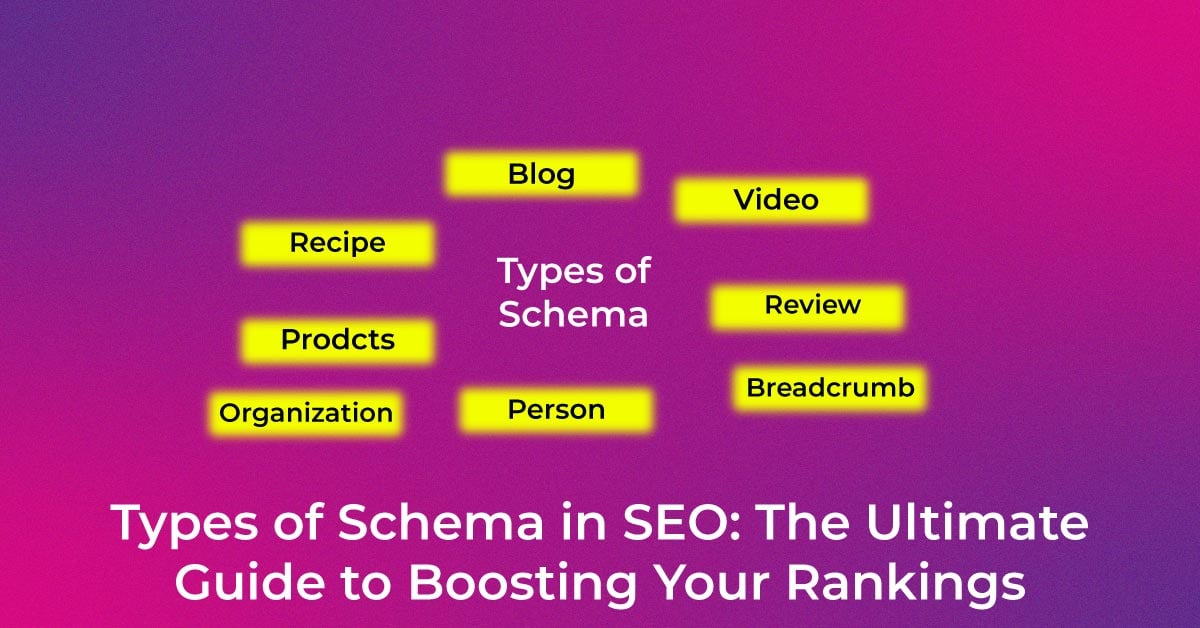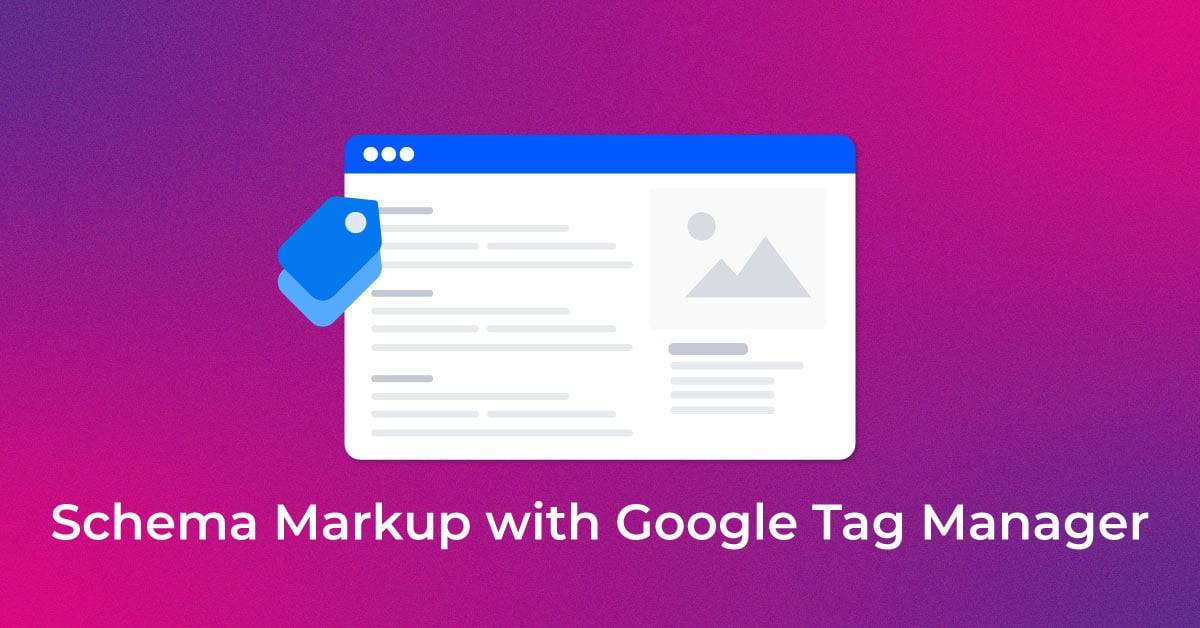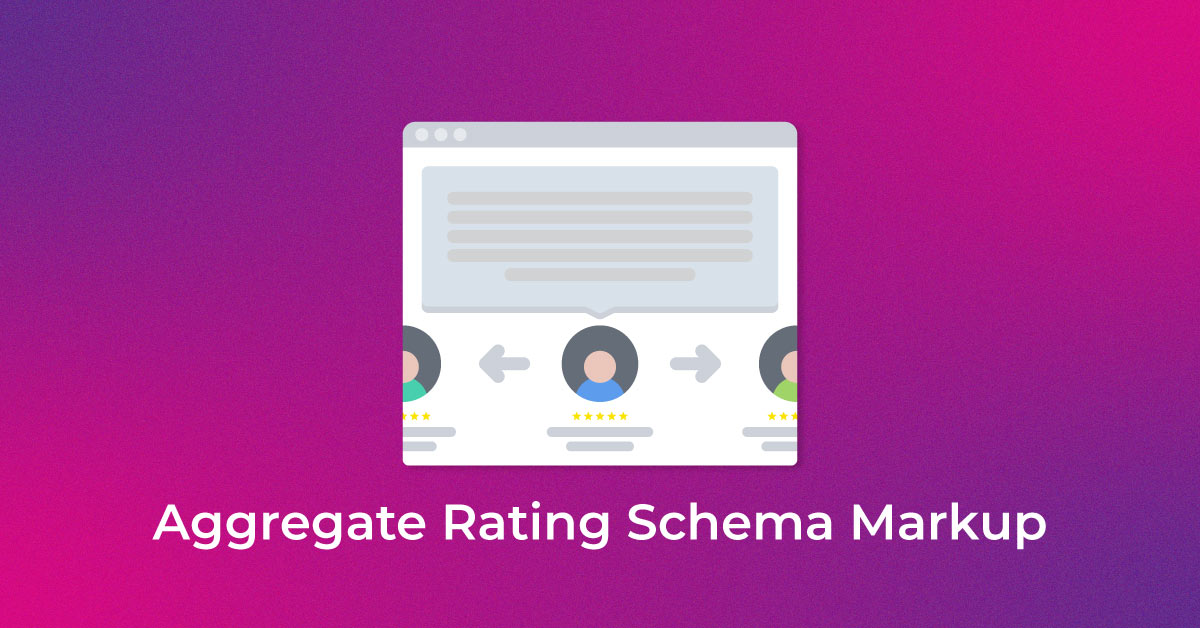What is Local SEO?
To effectively put your business on the SERP map and enhance your local SEO, start by diving into Google’s guidelines on schema markups. These guidelines will provide a comprehensive understanding of best practices, which is crucial for ensuring you’re implementing schemas correctly. While a deep knowledge of coding isn’t mandatory, grasping the basics will make it easier to work with schema markups, especially since some forms, such as Microdata, can be more complex. However, more user-friendly options, like JSON-LD, are also available to use.
When creating your schema markup code, ensure you select the appropriate template. Templates serve as a structured guide, streamlining the coding process and helping you include essential business information. But don’t just stop there – take the opportunity to enrich your schema by adding practical details such as your business’s location on Google Maps, website URL, and social profile links, as these can significantly enhance your local SEO checklist. Including these elements ensures that your search result appearances are more informative and engaging for users, which can improve click-through rates and local visibility.
The Importance of Schema Markup for Local Businesses
Schema Markup for local businesses significantly enhances search engine visibility and local SEO. When you utilize Local SEO Schema, you’re effectively communicating to search engines precisely what your business offers and where it’s located. This clarity allows search engines to display your information more prominently in local searches, which is instrumental in attracting nearby customers who are ready to engage or make a purchase.
Imagine your business information, including products, services, and reviews, showcased in a rich and appealing format directly on search results pages. This can encourage potential customers to choose your business over others by providing them with the reassurance and details they require right at their fingertips.
How Schema Enhances Your Online Presence
Schema Markup enriches your online presence by allowing search engines to not just see your website’s content, but to understand it. This deep comprehension leads to information being displayed more effectively in search results through rich snippets. These snippets include added flair like star ratings, images, and even business hours, providing a snapshot of your business that is not only informative but highly attractive to potential customers browsing online.
By enhancing your online presence in such a way, you also cater to the ever-growing mobile audience, as rich results are especially prominent on smaller screens. The clear-cut information stands out amidst a sea of text, catapulting your business above competitors who may not be leveraging this powerful SEO tool.
Benefits include facilitating a better user experience with upfront, useful information and potentially resulting in higher click-through rates, as searchers can quickly determine the relevance and credibility of your business. This can directly impact your bottom line by driving more traffic and sales from online searchers who are often ready to act on their local searches.
Implementing Schema Markup on Your Website
Choosing the Right Schema Category for Your Business
Choosing the right Schema category for your business is pivotal for effective local SEO. You need to select a category that aligns with the nature and niche of your enterprise. For instance, if you operate an ice cream shop, the appropriate category would be schema.org/IceCreamShop. On the other hand, if you own a local hardware store, you’d choose schema.org/HardwareStore.
Being specific helps search engines like Google understand your business better, categorizing your products or services accurately. This can lead to more relevant search queries triggering your listings. If a specific type doesn’t exist, opt for a generic category such as schema.org/LocalBusiness and use the “sameAs” property to link to a Wikipedia or Wikidata entry that describes your business type more closely.
Remember, if your business is multifaceted, being as specific as possible for each service or product offered can create a stronger online presence. For example, a restaurant that also offers a delivery service might use schema.org/Restaurant for the dining experience and schema.org/FoodDelivery for the service component.
When the right category is not immediately clear, or if you’re unsure where your business fits, seeking help from SEO professionals or using resources like the schema.org GitHub forum for recommendations can be invaluable. These platforms can guide you in your decision-making process or even lead to the development of new website localization categories that better suit your business. Proper localization of your business data ensures that your online presence is tailored to different geographic regions, which can enhance visibility and relevance across various locations.
Utilizing JSON-LD Format for Effective Implementation
Utilizing JSON-LD for effective Schema markup implementation on your website is a smart approach endorsed by Google itself. JSON-LD stands for JavaScript Object Notation for Linked Data, which is a script-based format that allows you to integrate structured data easily into a web page without interfering with the page’s HTML markup.
This format is more user-friendly because it creates a block of script that can be placed separately from the body of your page’s content, typically within the head element. JSON-LD boosts the accuracy and reliability of the Schema implementation process, reducing the risk of human-made syntax errors that are common with in-line markup methods.
By opting for JSON-LD, you can rest easier knowing that your structured data is not only more maintainable but also more robust against template changes that could otherwise disrupt embedded microdata. Additionally, JSON-LD is flexible and easily understood, enabling quick modifications and updates, which are essential for reflecting changes in your business operations.
To streamline the process, consider using tools like Google’s Structured Data Markup Helper or third-party generators such as Microdata Generator, Merkle Schema Markup Generator, or Schema App JSON-LD Generator. These can encode the detailed, precise, and up-to-date information search engines need to index and present your local business effectively.
Remember, the goal is to create rich results in search engines, maximizing visibility and attracting potential customers. By adopting the JSON-LD format, you can ensure that this vital structured data is handled correctly and works seamlessly to enhance your online presence.
Testing and Validating Your Schema Markup
Tools for Testing Structured Data Accuracy
When you have implemented your structured data, it’s crucial to check for accuracy to ensure it functions as intended. Fortunately, there are a variety of tools available to help you validate and troubleshoot your Schema markup:
- Google’s Rich Results Test is a powerful tool that verifies whether your web page supports rich results, which are enhanced search listings. It is designed to recognize the most common Schema types and displays a preview of how your page might appear in the search results.
- Bing Markup Validator is part of Bing Webmaster Tools and allows you to find out if Bing can detect the structured data on your web pages, essential for your visibility on this platform.
- Yandex Markup Validator, provided by the Russian search engine Yandex, assesses the validity of microformats, open graph, and Schema.org items on your web pages, enabling optimization for an international audience.
- Schema.org Structured Data Validator checks all types of schema markup, including JSON-LD, Microdata, and RDFa, without focusing on one search engine’s rich results, offering a broad overview of your markup’s validity.
Testing involves copying and pasting your URL or code snippet into these validators to check for errors or suggested improvements. These tools will not only confirm the successful implementation but will also point out syntax issues, required property omissions, or other recommendations. This step is essential because it guarantees both the syntactic correctness and semantic accuracy of your structured data.
Regular use of these testing and validation tools ensures ongoing compliance with structured data guidelines and can dramatically improve the chances of your business being correctly understood and displayed by search engines.
Remember that testing is not just a one-off task. As you make changes to your website or your business offerings evolve, you should revalidate your structured data to ensure it continues to accurately represent your company.
Monitoring and Improving Your Schema with Google Search Console
Monitoring and improving your Schema Markup is vital to maintaining your online presence, and Google Search Console is an invaluable ally in this process. By verifying your website with this service, you gain access to sitewide enhancement reports that showcase how many webpages have validated structured data. These reports alert you to warnings, errors, and successfully implemented markups.
Google proactively sends notification emails if there are issues with your website’s structured data, allowing you to address them promptly before they can impact your search rankings or the user experience negatively. It’s beneficial to pay attention to these notifications as they often highlight essential corrections needed in your Schema implementation.
Here’s a simple breakdown of steps for using Google Search Console to monitor your Schema Markup:
- Log into Google Search Console and navigate to the ‘Enhancements’ section.
- Look for the ‘Rich Results’ or ‘Structured Data’ tabs to view reports on your website’s Schema.
- Identify any errors or warnings, and find specific guidance on what needs to be fixed.
- After making the necessary adjustments, use the ‘Validate Fix’ feature to ask Google to re-crawl the updated pages.
By incorporating a routine checkup of your Schema Markup within Google Search Console into your SEO tasks, you ensure that you are always in compliance with Google’s best practices. Additionally, this monitoring will help you to seize new opportunities to optimize for rich results as Google updates its guidelines or introduces new features for local businesses.
Keeping your schema up-to-date with your latest business details not only helps potential clients easily find you but also builds trust with search engines, which can ultimately contribute to better search rankings.
Beyond the Implementation: Keeping Your Markup Up-to-date
Managing Changes Within Your Business Operation Hours and Categories
When managing changes within your business operation hours and categories, maintaining accurate details in your local schema markup is crucial—both for user experience and SEO purposes. If your business hours shift due to seasonality, special events, or unforeseen circumstances, you need to update your Schema to reflect these changes. The same holds true for any modifications in business categories, such as expanding services or product offerings.
For operation hours, leverage the Schema property “openingHours” to outline regular business times and “specialOpeningHoursSpecification” for exceptional dates. This ensures that when your potential customers search for you, they find up-to-date information and can plan their visits accordingly.
If you’re handling multiple locations with varying hours, you might need to manage this data individually for each location to prevent customer confusion. To keep these details hidden while editing or when irrelevant, tools like Semrush Local Listing Management allow you to adjust operation hours seamlessly across all listings with a few clicks—even when dealing with multiple locations.
Additionally, for managing business categories, select the most precise Schema type possible to represent each aspect of your business. If changes occur, like incorporating new products or services, assess if a more appropriate category has become relevant. If no specific category fits, look into broader categories still applicable to your niche and supplement them with detailed descriptions using “additionalType” and “sameAs” properties.
Regularly Reviewing and Updating Schema to Reflect Business Growth
As your business grows and evolves, it’s essential to regularly review and update your Schema markup to reflect these changes. This process ensures that search engines and users are provided with the most current and accurate information about your business, contributing to a positive online presence and local search ranking.
For instance, if you’ve expanded your offerings to include online appointments or deliveries, you should update your Schema to incorporate relevant new service types, such as “reservation” or “deliveryLeadTime.” Likewise, accolades or certifications that you’ve recently achieved can be showcased through properties like “award” to bolster your business’s credibility.
To keep track of these updates, create a regular audit schedule aligned with your business development milestones. This could be quarterly, bi-annually, or annually, depending on the rate of change within your organization. In addition to these scheduled reviews, promptly update your Schema whenever significant changes occur, such as:
- Moving to a new location
- Changing contact information
- Altering business hours
- Launching new products or services
- Hosting events or promotions
Updating your Schema is a straightforward process if you’re using JSON-LD, as you can edit and repost the updated script into your website’s HTML. Make sure to retest your Schema with validation tools after any edits to ensure that it’s error-free.
Regular Schema maintenance is an ongoing commitment but is well worth the effort when it leads to improved local SEO, better search visibility, and, ultimately, more business.
Tips to Manage Existing Schema Markup
1. Maintain your LocalBusiness Schema Markup
Maintaining your LocalBusiness Schema Markup is vital to ensure that your business information stays relevant and accurate in search engine results. This involves regularly checking and updating the Schema to match any changes in your business, such as new locations, altered service offerings, or changes in contact information.
To maintain your LocalBusiness Schema, follow these best practices:
- Review Regularly: Schedule routine check-ins on your Schema Markup—quarterly, for example—to ensure all information is current.
- Respond Promptly: Update your Schema immediately after any changes to your business details to avoid misinformation.
- Monitor Performance: Use tools like Google Search Console to track how your rich results perform and address any issues identified.
- Encourage Reviews: Keep the review portion of your Schema fresh by actively seeking customer feedback.
- Validate Updates: After making changes, run your Markup through structured data testing tools to ensure it remains error-free.
By maintaining an accurate LocalBusiness Schema, you signal to search engines that your business is an active, reliable source for the services or products you offer. This meticulously kept data can lead to trust with customers and a potential boost in search rankings over competitors who may neglect these details.
Remember, the more consistent and detailed your Schema Markup is, the clearer the message to search engines and potential customers, leading to better online visibility and actionable customer engagement.
2. Expand your Local Business Schema Markup
Expanding your Local Business Schema Markup is a strategic move to provide search engines with a richer understanding of what your business offers. This includes adding more detailed information about services, events, products, and other business attributes that could make you stand out in the SERPs.
To effectively expand your Schema Markup:
- Incorporate Additional Types: If your business diversifies its services or products, introduce new Schema types relevant to those lines of business.
- Leverage Review and Rating Features: Implement “review” and “aggregateRating” properties to showcase customer satisfaction and trustworthiness.
- Add Local Events: Use the “event” property if your business hosts or participates in local events, which can then appear in event-rich snippets.
- Highlight Special Offers and Promotions: Utilize “offer” and “specialOffer” properties to spotlight any deals, which could attract price-sensitive customers.
- Provide In-depth Descriptions: Use detailed descriptions with “description” and “disambiguatingDescription” properties to distinguish your offerings from competitors.
When expanding your Schema Markup, remember the goal is not just to provide more information, but to present it in a way that’s valuable and engaging to potential customers. Highlight aspects that present a competitive advantage or answer specific queries that customers may have.
The best product, event, or service schemas are detailed but relevant. Ensure that expanded elements of your schema are a true reflection of your business. For instance, if you introduce online reservations, add the “makesOffer” property with a detailed “Offer” type that includes all necessary information. Such an addition could significantly enhance the user experience and improve your local SEO.
Is Structured Data A Local Ranking Signal?
When discussing whether structured data is a local ranking signal, it’s crucial to clarify the distinction between direct and indirect ranking factors. Structured data, according to statements from Google, is not a direct ranking signal. This means that simply having structured data on your site won’t automatically boost your search rankings.
However, structured data can indirectly impact your search visibility in several meaningful ways. For instance, by providing clear and detailed information through Schema markup, search engines can generate rich snippets—enhanced search results that can include additional elements like star ratings, business hours, or event information. These rich snippets can improve click-through rates by drawing the attention of users and providing them quick answers to their queries, which may lead to better user engagement signals.
Additionally, structured data helps search engines understand the content of your website more accurately, potentially influencing the context and relevancy of your site to specific search queries. This improved understanding can lead to your site being shown in a wider array of relevant search results, which, while not a direct ranking boost, is beneficial for visibility.
In summary, while structured data isn’t a direct ranking factor, its proper use can lead to indirect benefits that positively affect your local search performance. Therefore, it’s a best practice for local SEO and should be an integral part of your digital marketing strategy.
Frequently Asked Questions about Local Schema Markup
What is a multi-type entity and when should I use it?
A multi-type entity is when an item on your website is defined using multiple Schema.org Types. This approach allows you to take advantage of all the properties accessible to each of the types employed, providing a more detailed and accurate description of the item in question.
You should consider using a multi-type entity when a single Schema.org type doesn’t fully cover all facets of a business or an entity. For example, if you’re a healthcare professional running a local clinic that also has a pharmacy within it, you might want to use both “MedicalClinic” and “Pharmacy” types. Doing so enables you to include specific properties relevant to each aspect, like “medicalSpecialty” for the clinic and “openingHours” for the pharmacy.
How should I mark up an action?
Marking up an action involves using Schema.org’s action-based properties to denote tasks that users can perform related to your business, such as placing an order or making a reservation. It’s an essential aspect of interactive structured data and shines in Google’s rich results.
For instance, if you run a restaurant that accepts reservations, you would use the “ReserveAction” type within your LocalBusiness Schema. To mark up an action, include properties like “target,” which specifies the URL where the action can be completed, and “actionStatus” to indicate if the action is active or completed.
How Can I Tell How Many Rich Results My Website Is Getting In The SERPs?
You can determine the number of rich results your website is generating in the SERPs by using specialized SEO tools that offer SERP feature tracking. One notable tool for this purpose is Semrush with its “SERP Feature” report. This report provides an aggregate view of the different rich results your website is achieving, displaying the specific types, like featured snippets or local packs, and their prevalence over time.
Additionally, Google Search Console is another primary resource. By navigating to the ‘Performance’ tab and filtering by ‘Search Appearance,’ you can see how often your site appears as a rich result, track click-through rates, and monitor impressions. This data lets you gauge the effectiveness of your structured data and its impact on search visibility.
Is There Anything I Should Avoid When Using Structured Data?
When using structured data, there are several practices you should avoid to stay within search engines’ guidelines and for the trust of your users:
- Misleading Content: Do not mark up irrelevant or misleading information that does not accurately represent the page content.
- Fabricated Information: Avoid creating fake reviews or ratings that are not authentic testimonials from real customers.
- Impersonation: Do not falsely represent another person or organization with your structured data.
- Using ‘noindex’: Structured data should not be on pages blocked from indexing by search engines. It should be associated with content that you want to be indexed and ranked.
- Spammy Practices: Do not implement structured data in a spammy manner, such as including content solely for the sake of SEO without providing user value.
Remember, violating these guidelines can result in manual actions against your site, which can negatively impact your search rankings. Always strive for the highest integrity in your use of structured data to improve your site’s value and trustworthiness with both users and search engines.
Takeaways
Here are the key takeaways to help drive business success with advanced markup strategies:
- Understand the Importance: Recognize that Schema Markup is a vital component for enhancing your business’s visibility in local search results.
- Accurate Implementation: Choose the most accurate Schema category for your business and implement it using JSON-LD for better effectiveness and easier maintenance.
- Regular Monitoring: Use tools like Google Search Console and structured data testing tools to monitor and validate the accuracy of your Schema Markup regularly..
- Expand Thoughtfully: Look for opportunities to expand your LocalBusiness Schema to encompass all facets of your business for more detailed representation in search results.
- Track Performance: Systematically review how your rich results are performing in SERPs to identify areas for improvement and measure the impact of your structured data.
Embrace these practical steps to refine your local SEO approach. With diligent application and regular maintenance of structured data, you can deliver a more engaging search experience for users and solidify your local business’s position in the digital landscape.
Popular Searches
How useful was this post?
0 / 5. 0

















